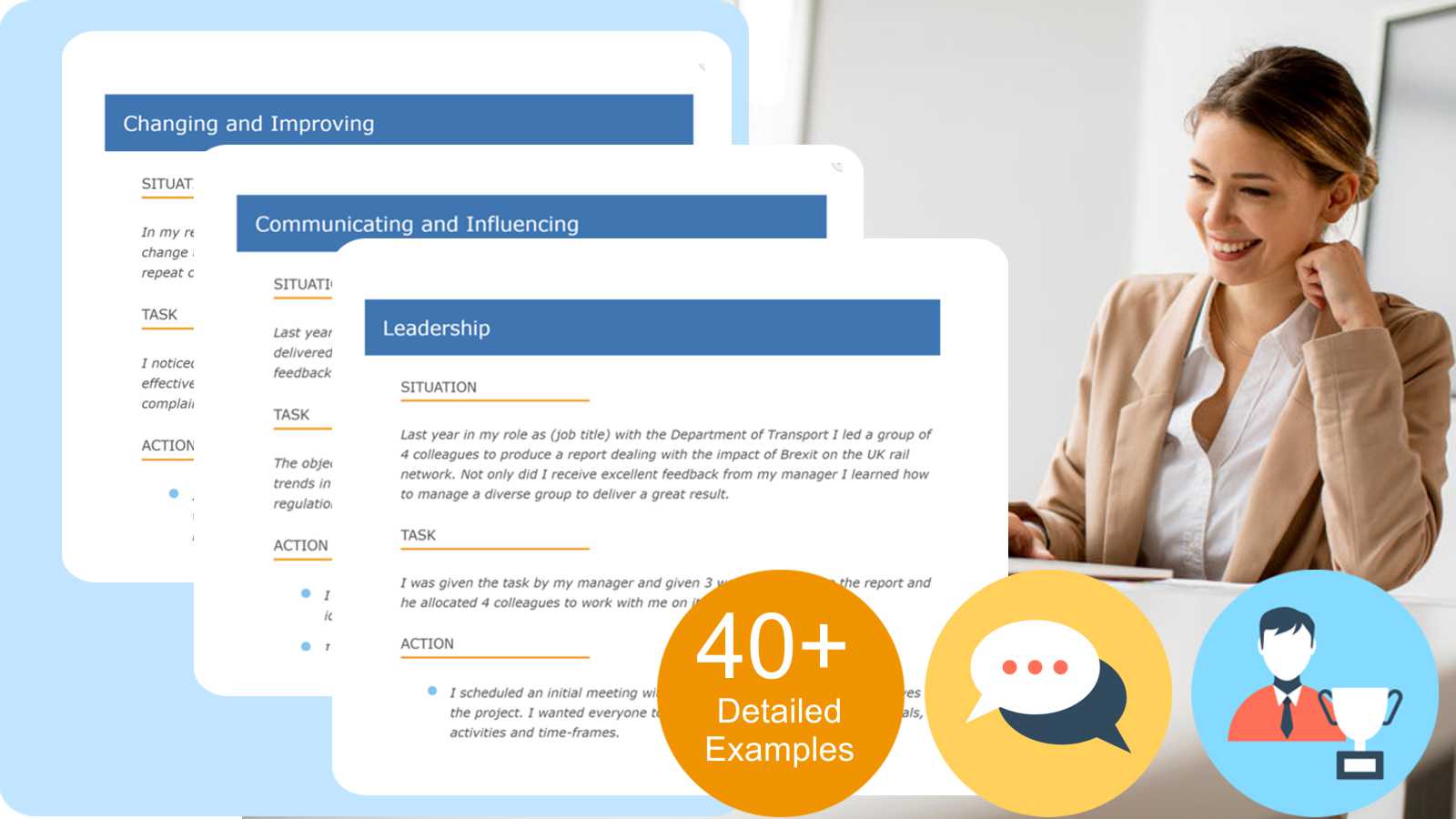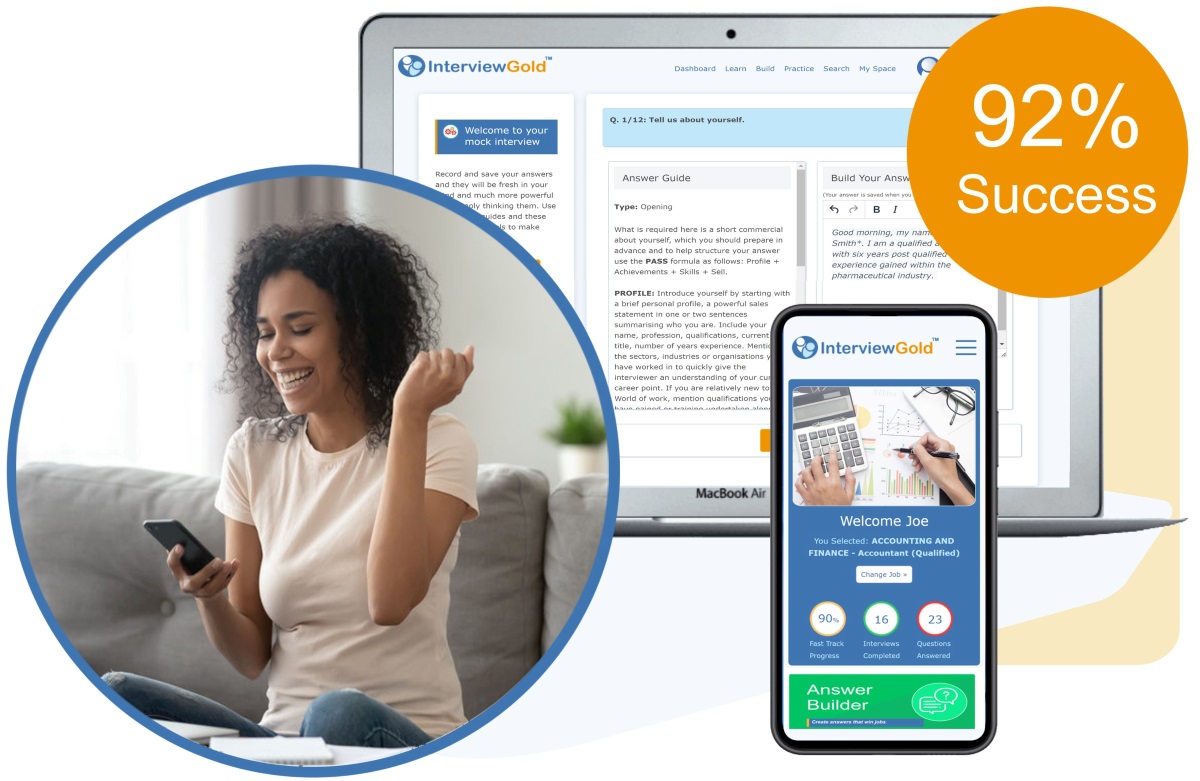
Success in your job interview will depend on how well you answer the questions.
That sounds very obvious, however many of the clients we coach assume that a great resume will be enough to win the offer.
That assumption is a mistake!
In article, we look at two of the most common questions that can arise:
What are your strengths?
What are your weaknesses?
These are what we call the big core questions, they are vitally important and you must answer successfully to be in with a chance of a job offer.
A great answer to these questions can really set the scene for a successful outcome while conversely, a poor answer can rule you out of the running straight away.
In this article:
- What Are Your Strengths Interview Question
- What Are Strengths in a Work Setting?
- How to Answer: What Are Your Strengths?
- What Are Your Strengths? Sample Answer to Inspire You
- Mistakes to Avoid When Answering The Strengths Interview Questions
- What are Your Weaknesses Interview Question
- How to Answer: What Are Your Weaknesses?
- What Are Your Weaknesses? Sample Answer
- Mistakes to Avoid When Answering the Weakness Interview Question
- What to Say When They Ask for Another Weakness in a Follow On Question
- Learn How to Answer Any Interview Question With 100% Confidence
What Are Your Strengths Interview Question

Your interviewers will want to determine whether you have the strengths relevant to the job role and they will analyse your answers for evidence. They also value candidates with self-awareness and an understanding of key skills and gaps which require development.
Interviewers have two objectives in asking: What are your strengths?
Firstly, they really want to know what you are good at.
And secondly, they want to see how aware you are of your strengths and how you can use them in a working environment.
Perfect STAR Answers: Know What To Say to Win Your Next Job
What Are Strengths in a Work Setting?

Firstly, lets look at what they mean when they say strengths.
Strengths in a work environment are the positive attributes, skills, and qualities that employees possess and demonstrate to excel in their roles.
These strengths contribute to a productive and efficient workplace and can be beneficial for both the individual and the organization. Here are just three common strengths valued in a work environment:
- Communication: Effective communication skills, including listening, speaking, and writing, facilitate clear and concise interactions among team members and with clients or customers.
- Problem-solving: The ability to analyze challenges, think critically, and come up with creative solutions helps employees navigate complex situations and overcome obstacles.
- Adaptability: Being adaptable and flexible allows employees to respond well to changes in the work environment and adjust their approaches as needed.
These can be referred to as competencies or abilities and others include, planning and organising, financial management, numeracy and teamwork.
Learn how to answer competency based interview questions like a pro here.
How to Answer: What Are Your Strengths?

Follow these steps to create a winning answer for this question
1. Tailor Your Answer
You must talk about strengths which are RELEVANT to the role. Your research completed either in the MPOWER or the previous lesson will help you identify these and armed with this knowledge you will know exactly which of your strengths to mention. Frame your strengths using the language and key words that the employer uses as this will help them to score.
2. Use the ABC and Rule of 3 Formulas
Avoid just spilling out a long list of strengths. Instead select just the top 3 key strengths to talk about.
Use the ABC formula to structure your answer and combine it with the ‘rule of 3’ – This is founded on the notion that concepts or ideas presented in triads possess inherent charm, greater delight, and enhanced memorability.
When you think about stories they always have a beginning, middle, and end and in the same way an interview answer is a story which can be structured similarly. We cover these in more detail in the How to Answer masterclass.
3. Back up With Evidence
You must talk through situations, example of when you used these strengths. This will provide proof that you actually possess these strengths and can use them effectively in a work related setting. Use the STAR and IPAR formulas to bring structure.
What Are Your Strengths? Sample Answer to Inspire You
Use both the ABC Formula and the Rule of Three when answering.
I bring a range of strengths both technical and personal and three which I see as particularly relevant are:
Firstly my skills when leading a team, secondly my experience in providing excellent accounting service and thirdly my ability to resolve problems effectively so as to get things done.
In terms of leading, in my current role I successfully led a highly effective team of 10. I actively contributed and motivated my fellow team members to achieve an increase in our resolution rates of 15% for the past year.
I am fully qualified and experienced with providing excellent accounting service. I delivered a range of initiatives improving the service we give, resolving issues and dealing with client queries faster. The result of this was a 25% improvement in positive feedback from our clients, an achievement I am very proud of.
I am excellent at solving problems. I know how to investigate the cause of a problem, how to gather information and how to use this to create a solution. For example if the issue relates to a client, I will view it from their point of view and ensure that ultimately they are completely satisfied with the outcome.
Finally, just to mention that I am very skilled with technology; in fact in my current role, I’ve become a lead user for the client database system we use. I am proficient with the regular Office IT systems too and quick to learn.
What Not to Say
Here are some examples of a poor answer to the what are your strengths question. Can you see why they don’t work.
Mistakes to Avoid When Answering The Strengths Interview Questions
Here are mistakes to avoid when answering:
Strengths that are not relevant: You must talk about the most relevant strengths irrespective of how skilled you may be.
Avoid mentioning very common strengths or cliches that do not add value: for example, ‘hard working’ is an assumed strength and will not greatly differentiate you from the other candidates.
Being indecisive: As mentioned above, employers need to see that the person they hire know themselves and what they bring. Giving a clear, strong answer backed up with evidence and you will show yourself to be a strong, decisive employee.
Being too reticent or modest: Answering the question about your strengths is a great opportunity to sell yourself. Avoid the tendency to be modest.
Qualifying your answer: Avoid using qualifying language such as I think, I suppose, I guess as you will not get many points. Better to say “I am excellent with (skill).” Then back it up with an example.
Being too reticent: Answering the question about your strengths is a great opportunity to sell yourself. Avoid the tendency to be modest.
What are Your Weaknesses Interview Question

A very popular interview question and one that is favoured by the traditionalists is:
“Please tell me what are your weaknesses?”
Variations of this question can include:
- What would your manager or colleagues say is your biggest weakness?
- What areas do you need to improve on?
- What is your greatest weakness?
- Are there any problem areas or developmental needs that we should be aware of?
- What skills would you have you need to develop at this stage in your career?
Despite being such a common question with lots of advice online, many candidates still struggle to give an effective answer. So, how do you answer it effectively while at the same time making sure you don’t give something away which would give your prospective employer a reason not to hire you?
How to Answer: What Are Your Weaknesses

Follow these guidelines to give a strong answer to this question:
Be prepared in advance: Think about your weaknesses along with your strengths before going to an interview. Think of your weaknesses as development opportunities; something that hasn’t turned into strength yet.
Pick a weakness that it is not vital to the role: Your research will inform this. For example, you could talk yourself out of a job if you say that your people skills are in need of development if the role is in a direct customer facing role.
Put it in the past: We find that its best to mention something which you experienced in the past and which you are working to overcome or have in fact already overcome it.
Don’t focus on the negative: Keep your answer brief. In just a few words mention what your development opportunity is and then focus your answer on how you overcame it and how this is now a strength.
Describe a situation: Give an example and provide a solution at the same time. Choose something which is not critical: If you mention something which is ‘Essential’ to the role you may damage your chances.
Show you are learning: Emphasis that you are learning and if a certain thing is a shortcoming at the moment, it will show the hiring manager your willingness to constantly improve and learn.
Be brief in your response: This gives you less scope to elaborate too much and say something that will put the interviewer off.
How do you answer it effectively without sounding false or risking giving away a lack of a vital skill? You don’t want to give your prospective employer a reason not to hire you.
The main difficulty with this interview question is that you have just spent the first part of the interview selling yourself and trying to convince your interviewer that you are fantastic. Your instinct is to keep your faults well concealed.
What Are Your Weaknesses? Sample Answer
Here is a snippet of a sample answer. Keep it short, positive and direct.
Looking at the role I can see that I am an excellent fit for the role and am confident in my ability to lead the team and provide excellent customer service to your clients.
In terms of weaknesses, I recall when I was promoted into the Team Leader role with my current employer I struggled when dealing with staffing issues such as managing disciplinary and grievance. I was promoted into the post because I was excellent when dealing with clients, managing complaints and sorting out problems however as I had less management experience I was outside my comfort zone.
I realised I needed training and so I spoke to the HR manager who designed part time Manager Training course for me. I attended one day per week for 8 weeks and it was great; it taught me how to handle difficult staff situations and how to motivate people. I really developed confidence and I used what I learnt on the course to manage a much larger team very successfully.
What Not to Say – Mistakes to Avoid When Answering the Weakness Interview Question
Here are some of the more common mistakes candidates make when answering:
Using false weaknesses: For example, “I get so involved in my work that I rarely take a break.” This would only indicate that you are in fact inefficient.
Mention a critical skill: For example: “I am not a people person.” Not a good answer if your job is managing or dealing with others. Might be ok, if you were a software developer working in a remote location.
Confessing all: You are in control in the interview and you can choose what to say. Don’t be tempted to gush all your failings as it will guarantee losing the job.
What to Say When They Ask for Another Weakness in a Follow On Question
So, you think you have successfully passed that tricky moment, but interviewers have now found another way to try and catch you off guard:
“Ok, thanks for that, now tell me about another weakness that you have.”
This is simply a repeat of the first question and the interviewer may expect that you haven’t spent time thinking about a second answer and so will trip yourself up.
You could give up another weakness, but this will look like you have tried to hide something earlier.
Despite my advice to always answer an interview question directly this is different – you HAVE answered it earlier. Don’t feel obliged to come up answers for the sake of it. My advice is to stop for a moment and act as if you are thinking hard. Then re-iterate your first weakness:
“That’s really my only weakness and as mentioned it is something I am overcoming with the training course I am undertaking. I am really enjoying it and have found that I actually have a great aptitude for….”
Answer Any Interview Question With 100% Confidence
Remember what I said at the start of this article – you are there to sell yourself to the interviewer and so don’t give away any faults unnecessarily.
These questions are aimed at testing your self awareness as well as a range of other skills such as your analytical skills. You may be prone to nervously ramble when asked such stressful questions and so the interviewer is testing your confidence in your answers.
Want to be able to answer smoothly and confidently? Then check out our InterviewGold Online Training program. With interview questions specific to your role, all with expert answers, you will know just what to say (and not to say) in any job interview.
Practice and Prepare with InterviewGold and Get Your Target Job
Get Instant Access to InterviewGold and Get The Job You Want



